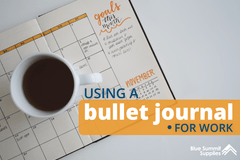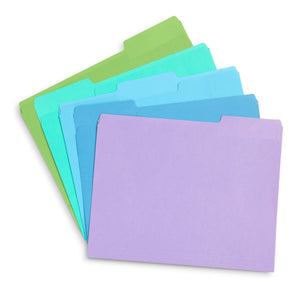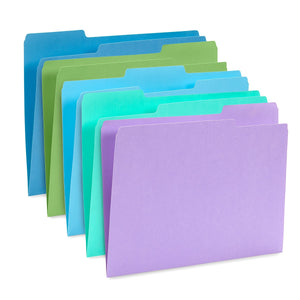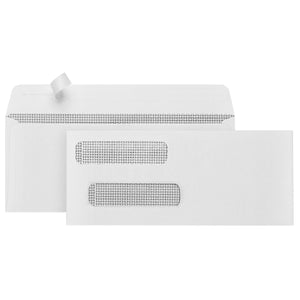Owen Franklin, CEO of Blue Summit Supplies, is passionate about using journaling for reflection, self-discovery, and self-improvement. He blocks time in his daily routine to journal at least four times a week, with a goal of seven times per week, and he reviews his entries every 30 days to search for common threads. He uses a work journal app for efficiency since it allows him to transcribe his thoughts faster, and it makes his journal entries searchable.
Whether you use an app, an online document, or a good old fashioned notebook, journaling helps you sort your thoughts, improve your habits, and clear your mind.
In this post, we’ll outline the benefits of keeping a daily work journal, what you can use a journal for, and how to turn journaling into a consistent habit. We’ll also provide tips for writer’s block and writer’s block prompts to help keep your thoughts flowing.
The Benefits of Daily Journaling

Opportunity to Reflect and Learn
Journaling provides insight into how you feel and act. You can record your thoughts, actions, and what occurred in a day in order to learn from it. Bad days are going to happen, but if you can learn from them, you can prevent them from happening as often.
Our CEO, Owen, uses his journal for reflection and continuous improvement. He writes about what happened during that day, things he noticed, things that bothered him, things that made him angry or disappointed, things that worked really well, and any lessons he learned.
"To me, the whole point of a journal is reflection—to remember what happened, to gather data, and to reflect and learn from it." - Owen Franklin, CEO of Blue Summit Supplies

Provides a Place to Vent
Journaling provides an ideal space to vent—you don’t use up anyone else's time, and you don’t have to worry about saying anything you’ll regret later. You can let it all out and express exactly how you feel. Take a breath, read it over, and try to understand where your feelings are coming from.
Letting angry or sad thoughts out in a journal entry can sometimes be enough for us to calm down or see a new perspective. Before you jump into a confrontation with someone else, take it to your journal. Let it sit. See if you still feel the same way in a few hours or the following day.
Owen says his journal allows him to step above a problem and ask, “Was I wrong?” “Were they wrong?” “What can I learn from it?” “What can I do about it?” And since he does this four to seven times a week, he learns a lot about himself, and he’s able to turn that learning into actionable insights.
"If you experience pain, it's very difficult to learn from it until you truly think about what happened." - Owen Franklin, CEO of Blue Summit Supplies

Promotes Mindfulness
Journaling is a mindfulness activity. You know all that talk about the power of meditation? It works! Meditation helps you focus, improves your mood, clears your mind, and prevents burnout.
A busy workday can lead you from one task (or problem) to the next without a clear time for breaks. Prioritizing journaling every day forces you to take a small moment for yourself—time to clear your thoughts, refocus, and reset.

Keeps a Lasting Record
A journal is a permanent record of your thoughts and experiences. You can look back on it at any time to clarify a memory or to see how you’ve grown or changed over the years.
It’s a keepsake and time capsule of your mind at various points in your life. Looking back on entries from the previous year, such as on your birthday or New Year’s, allows you to reflect on the year as a whole. What differences do you see in yourself when you look back on older journal entries? What patterns still exist, and what can you do to change and grow?
It’s easy to forget how we felt a few days ago, let alone a few years ago. Our memory can trick us into believing things are true when they aren’t. A journal entry is hard evidence of when and how events unfolded, as well as a look into your mindset at that time.

Improve Your Own Systems
The process of journaling provides an opportunity to improve our own systems. When you take the time to review entries, you can look for patterns that need addressing. You can use your journal entries as insights into how you feel, live, and work on a daily basis.
"You only get 24 hours out of the day—by journaling, I get more out of the 24 hours." - Owen Franklin, CEO of Blue Summit Supplies
What areas of your life are causing you the most stress? Where are you focusing your energy? What makes you angry or sad, and how can you either eliminate this aspect of your life or work on dealing with it better? What makes you happy, and how can you bring more of that happiness into your life?
What Can You Use a Work Journal For?
- Reflecting on the past day’s events
- Sorting your thoughts
- Venting when you are in a bad mood
- Working through disagreements with other people
- Planning for the future
- Tracking your feelings and mood
- Reliving happy moments
- Expressing gratitude
- Working through wild ideas
- Discovering areas of self-improvement
- Establishing a lasting record of your thoughts
- Finding moments of calm mindfulness
Tips for How to Keep a Work Journal

Make a Commitment, and Hold Yourself Accountable
Journaling consistently takes accountability. How will you hold yourself accountable once you decide how and when you want to journal? Some people find it easy to hold themselves accountable, while others work best when they are held accountable by other people.
Our CEO, Owen, created an official Journaling Contract that hangs on the wall in his office. It’s signed and notarized to help him stick with the habit. It may just be a piece of paper, but it helps him stay accountable and is a constant reminder of his commitment to himself.
"It takes an enormous amount of discipline to do that—that's what the contract is for. That contract says that I'm going to journal every day." - Owen Franklin, CEO of Blue Summit Supplies
Different personality types respond to different forms of accountability. Figure out what works best for you, make a commitment to journaling, and do your best to stick to it.

Make Journaling a Habit
Once a habit is formed, it’s difficult to break because it becomes ingrained in the brain. This may not be good news for your nail biting, but it’s great news when it comes to building healthy habits. It may take a while to form a journaling habit, but it will stick with you once you do.
It can take months to form a habit, which means you need to dedicate yourself to it. Set goals, and track your progress over three to six months. Habit trackers help you monitor and document your progress, and they help keep you accountable. You can use a paper tracker, like the free downloadable habit trackers we created, mark your success in a calendar, or use a habit tracker app.

Journal at the Same Time Each Day
Picking a consistent time to journal each day will help you journal more frequently. Days get busy, and who knows what unexpected tasks or emergencies could come up? Journaling at the same time each day will help you build it into your routine, and it will prevent the day from getting away from you.
Our CEO usually journals in the morning over a cup of coffee. Owen’s brain works better in the morning, and he feels less pressure to complete the task. Since he journals early in the day, his entries cover how he feels that morning and what happened the day before.
Taking a moment to journal at lunch, at the end of the workday, or before you go to bed are also good options. If you find you are consistently missing your allotted time to journal, it could be because you’ve chosen the wrong time of day.

Review Previous Entries
To get the most out of your journal, take time to read and reflect on your previous thoughts. What trends do you see? Are there any issues that come up time and time again?
Owen reviews his journal every 30 days to look for patterns and themes. Seeing which issues repeat helps him recognize where he needs to improve. Then, he can make slight adjustments to enhance his happiness, effectiveness, and wellbeing.
"But the biggest value to me is that every 30 days I go back and I read it, from front to back. It allows me to look for trends, keep an "Issue Log," and categorize any issues I find." - Owen Franklin, CEO of Blue Summit Supplies
When he runs into patterns or recurring issues, he reaches out to his mentor for help with addressing them. He identifies ways to prevent the issues from occurring as frequently, or he works to weed out the problems altogether.
Reflection is good for improving efficiency, but it’s also therapeutic. Reading through past entries and reflecting on recent past events is a healthy mindfulness activity, and rereading the description of happy moments/memories can boost your mood and make you happier.
What to do When You Have Writer’s Block
Writer’s block hits those who journal too, and it’s no use making time for daily journaling if you get stumped as soon as the pen is in your hand. Have a few prompts ready so that you don’t waste any time when you have an opportunity to journal.

Easy Writing Prompts for Describing Your Day
A simple and effective direction for your journal involves describing your day. This can be either the current day or the previous day, depending on when you last wrote in your journal. Ask yourself questions about the day, such as:
- What did you do?
- How did you feel?
- What made you feel that way?
- Do you still feel that way?
- Did anything bother you?
- What did you eat?
- How was your sleep?
- Did you learn anything?
- Do you wish you did anything differently?
- Is there anything that went well that you hope to repeat again?
-
Did you do anything that made someone else happy?

Writing Exercises for Writer’s Block
Sometimes you need a little writer’s block help. If you’ve already described your day and don’t have anything left to say, use additional prompts to keep the words coming. Don’t take too much time to think about your answer—just keep writing. If you stray away from the original question, that’s okay. The whole point of a prompt is to get you writing so that your mind can go where it wants to go.
The following prompts will get you started if you experience writer’s block when journaling:
- What are you grateful for?
- Who are you grateful for?
- What makes you smile?
- Choose a recent happy moment and describe it in detail.
- Who makes you feel happy? Why?
- Describe your current mood.
- How does your body feel physically?
- Did you dream about anything recently?
- What do you like about yourself?
- What did you accomplish yesterday?
- What did you accomplish this week?
- Describe what you see around you.
- What’s the best advice you ever received?
- What advice would you give a younger version of yourself?
- What do you want to say to a future version of yourself?
- If you could travel anywhere, where would you go?
- What does your ideal job look like?
- What does an ideal day look like?
- What’s the next day you’re looking forward to on the calendar?
More From Blue Summit Supplies
💡 Travel Journal Ideas for Your Next Adventure
💡 The Benefits of Work-Life Balance and How to Maintain it
Do you love office organization, productivity, and self-improvement as much as we do? Follow our office supplies blog for the latest trends, strategies, product comparisons, and more.
If you have any questions or want to talk to someone about office supplies, send us an email or connect with us on Twitter, Facebook, or Instagram.
 For more informative articles about office supplies, subscribe to our email newsletter!
For more informative articles about office supplies, subscribe to our email newsletter!
Never fear, you won't begin receiving daily sales emails that belong in a spam folder. Instead, we promise a fun weekly roundup of our latest blog posts and great finds from across the web. And if you lose interest, it's always easy to unsubscribe with a single click.










